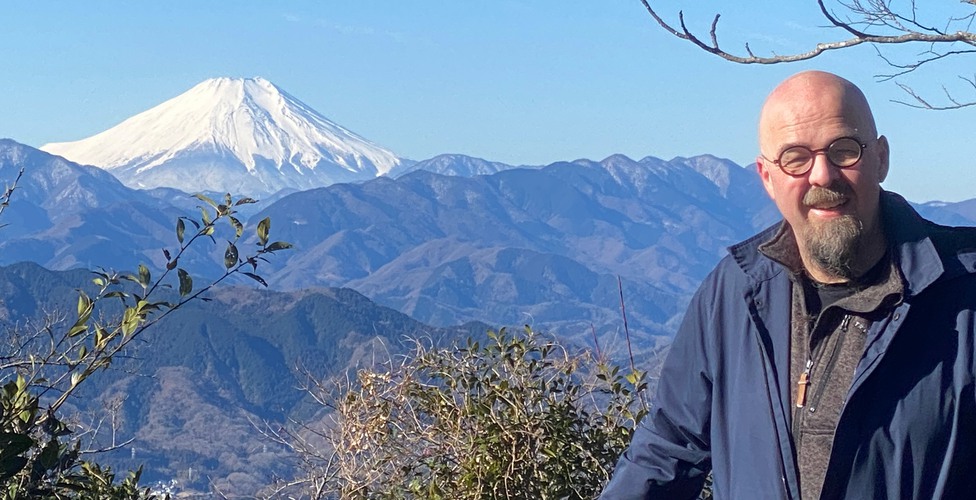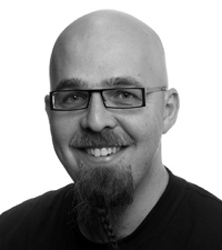What was love, at first sight, became his calling. A super fascination for programming and later game development. Henrik Engström started working at the University of Skövde in 1996 and now holds the title of Professor in Informatics. Recently, he spent ten weeks at a university in the gaming nation Japan and brings many new experiences with him back home.

Henrik Engström began his academic career by studying mathematics at Uppsala University, but realised that it was computer science, and above all programming, that he should study, and changed his major. He has worked at the University of Skövde for 27 years and was one of the driving forces behind the initiative to start the game development educations at the University of Skövde over 20 years ago. Today he teaches, supervises PhD students and does research in game development.
Through The Swedish Foundation for International Cooperation in Research and Higher Education, STINT, Henrik Engström had the opportunity to go to Tokyo. The initial idea was a three-month stay in 2021, where parts of his family would join. The pandemic put an end to that thought, and it took until this year before Henrik could go.
“Japan really is the great gaming nation. The generation after me grew up with, for example, Nintendo,” says Henrik.
Cooperation with the industry
Henrik spent ten weeks at Tokyo University of Technology, a university on the outskirts of the big city. The university is a leader in Japan when it comes to academic education in game development and, just like the University of Skövde, has education at Bachelor’s level, Master’s level and postgraduate level.
“The education environment is similar to ours and we started programmes in game development at about the same time. Tokyo University also has a broad focus with different disciplines in game development just like the University of Skövde, but engages more in creating networks and collaborations with the industry.”
Just as in the University of Skövde's game educations, part of the education is conducted in project form where students, from different subject areas, create games together. Henrik participated in part of the teaching and worked with the supervision of Master's students and PhD students. He was also present at company visits, a consumer fair where student work was presented, and at the Master's students' mandatory presentations at various conferences.
Language – a big barrier
He states that it is an educational experience to be in a situation where you do not know the language and that it was a great challenge for him in Japan.
“English is not enough in Japan, because there are many people who cannot communicate freely in English. I solved it through different translation tools. It worked well in chats, and in Zoom meetings I learned that there is a solution for live transcription. It meant that I could keep up with a lot, but not directly participate in the discussions. It was a completely different position for me and a new experience.”
Henrik has been teaching students from different parts of the world for 25 years, but his time in Japan has given him a partially new view of it and clearly an increased understanding of language difficulties.
“The most important experience I take home with me is of course what it's like not knowing the language of the country you are in. It is a good insight and has given me a deeper understanding.”
Apart from the language difference, the many similarities in the two education environments, at the University of Skövde and the Tokyo University of Technology, are a good basis for expanded cooperation regarding student exchanges.
During his time in Tokyo, he conducted a survey among Japanese students to get an idea of what they thought about studying in Sweden and at the University of Skövde.
“Language and finances are highlighted as the biggest obstacles to going on an exchange, even though Japanese people like Sweden and the Nordics. Some students also raised the issue of security as Japan is a very safe, secure and well-ordered country where everything works. During my time there I didn't see a single broken escalator and there are a lot of escalators. In addition, all trains depart, always on time,” he notes.
Why do you think that employees at the University should go on exchanges, if given the opportunity?
“It's incredibly exciting and really great fun. Go, if you can skip your work at the University during the time.”

